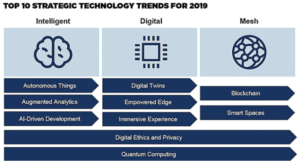
Blockchain technology has evolved far beyond its origins in cryptocurrency, transforming industries through innovative decentralization solutions. While Bitcoin introduced the world to blockchain concepts, today’s applications span healthcare, supply chain management, voting systems, and digital identity verification.
Understanding Blockchain Beyond Cryptocurrency
Most people associate blockchain technology exclusively with digital currencies like Bitcoin and Ethereum. However, this revolutionary system offers much more than financial transactions. Decentralization principles embedded in blockchain create transparent, secure, and tamper-proof record-keeping systems that eliminate intermediaries across various sectors.
The fundamental strength of blockchain technology lies in its distributed ledger system. Unlike traditional databases controlled by single entities, blockchain networks spread information across multiple nodes, ensuring no single point of failure exists. This decentralization approach builds trust without requiring central authorities.
Healthcare Revolution Through Blockchain
Medical records management represents one of the most promising blockchain technology applications. Hospitals and clinics struggle with fragmented patient data, privacy concerns, and interoperability issues.
Decentralization in healthcare ensures patients control their medical information while enabling seamless data sharing between doctors, specialists, and hospitals. Smart contracts automatically execute insurance claims, reducing processing time from weeks to minutes. This blockchain technology implementation improves patient care while reducing administrative costs significantly.
Supply Chain Transparency Revolution
Global supply chains benefit enormously from blockchain technology implementation. Walmart uses blockchain to trace food contamination sources within seconds rather than weeks.
Decentralization allows consumers to verify product origins, ethical sourcing, and quality standards independently. Luxury brands combat counterfeiting through blockchain certificates, while pharmaceutical companies prevent dangerous fake medications from entering the market. This transparency builds consumer trust and brand loyalty.
Voting System Modernization
Democratic processes gain credibility through blockchain technology integration. Traditional voting systems face challenges including fraud allegations, technical failures, and accessibility limitations. Blockchain-based voting creates immutable records that voters and authorities can verify independently.
Decentralization ensures no single entity controls election results while maintaining voter privacy. Estonia successfully implements blockchain voting for national elections, demonstrating practical applications of this technology. Citizens vote securely from anywhere while maintaining complete transparency in the counting process.
Digital Identity Management
Personal identity verification transforms through blockchain technology solutions. Traditional systems require multiple documents, lengthy verification processes, and centralized databases vulnerable to breaches. Blockchain creates self-sovereign identity systems where individuals control their personal information completely.
Decentralization eliminates the need for government agencies or corporations to store sensitive personal data. Users share specific information as needed while maintaining privacy and security. This blockchain technology approach reduces identity theft risks while streamlining verification processes for banking, employment, and government services.
Real Estate Innovation
Property transactions benefit from blockchain technology through transparent, efficient processes. Real estate deals traditionally involve multiple intermediaries, extensive paperwork, and lengthy closing periods.
Decentralization enables fractional property ownership, making real estate investment accessible to smaller investors. Property histories become permanently recorded and easily verifiable, reducing fraud and disputes. This blockchain technology implementation reduces transaction costs while increasing market accessibility.
Intellectual Property Protection
Creative industries leverage blockchain technology for copyright protection and royalty distribution. Artists, musicians, and writers register their work on blockchain platforms, creating timestamped proof of ownership. Smart contracts automatically distribute royalties to all stakeholders when content is sold or licensed.
Decentralization ensures creators maintain control over their intellectual property while enabling transparent revenue sharing. This blockchain technology approach reduces piracy while ensuring fair compensation for creative work.
Challenges and Future Outlook
Despite numerous advantages, blockchain technology faces scalability, energy consumption, and regulatory challenges. . However, newer consensus mechanisms and layer-2 solutions address these limitations effectively.
Decentralization sometimes conflicts with existing regulatory frameworks, creating uncertainty for businesses and investors. Governments worldwide develop blockchain-friendly policies while maintaining necessary consumer protections.
Conclusion
Blockchain technology extends far beyond cryptocurrency applications, revolutionizing industries through decentralization principles. Healthcare, supply chain management, voting systems, digital identity, real estate, and intellectual property sectors benefit from blockchain implementation.
Organizations embracing blockchain technology gain competitive advantages through increased transparency, reduced costs, and improved security. As technical challenges resolve and regulatory clarity improves, decentralization will become the standard for trust-based systems across all industries.
The future belongs to businesses understanding that blockchain technology offers transformative solutions beyond digital currencies, creating value through decentralization and transparency.





